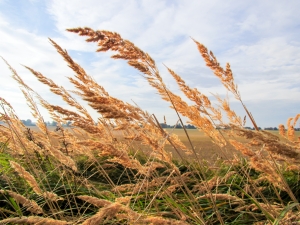Based on speeches they gave to a National Farmers' Federation (NFF) conference in Canberra last week, the Prime Minister is keeping her focus on long-term thinking. But one would be left with little idea what a coalition government would do to boost ties with Asia.
In coming weeks Gillard will have many opportunities to address the region, with the release of Labor's Asian Century white paper on Sunday followed by leaders' summits in Bali, Laos and Cambodia.
It's in this context that her speech to the NFF on the future of Australian agricultural exports to Asia struck exactly the right tone.
The Australian economic story of the past few decades has been about coal and iron ore.
The coming decades will be about Australia's fruit, dairy, quality meat and seafood.
Agriculture is projected to grow from two per cent of Australian gross domestic product (GDP) to five per cent by 2050, according to Treasury, surpassing the size of manufacturing within a few decades.
While minerals — as Treasury secretary Martin Parkinson says — were the "first wave" of exports to Asia, the second wave will be Australian agricultural produce and know-how.
Gillard put it this way: "The low hanging fruit (mining) has been picked, so we have to reach higher up the tree."
China's GDP has grown at an average annual rate of 9.9 per cent in past three decades, and external trade in 2011 was 3100 times more than in 1950.
It is now the world's second largest economy and the second largest trading country, and on track to be the biggest.
Gillard said apart from growing food, there are opportunities to export technologies — to increase yields, reduce water use and lessen environmental degradation, manage soil and improve marine aquaculture.
However, translating that into dollars from Asian buyers means better training and education, research, freer trade, shoring up biosecurity, improving soil quality and getting water to work more efficiently.
Politically, one of the tricky issues remains foreign ownership and investment.
Gillard points out foreign direct investment in Australian agriculture, forestry and fishing accounts for just 0.1 per cent of total foreign investment.
And 89 per cent of agricultural land is entirely Australian owned, with a further six per cent majority-owned by Australians — roughly similar levels to 30 years ago.
However, the impression many voters have is of large Chinese government-linked firms swooping on vast tracts of prime land in a bid to shore up food supply for their own people.
Abbott's coalition partner, Nationals leader Warren Truss, describes it as an "avalanche of takeovers".
The prime minister announced the government would set up a foreign ownership register for agricultural land, something the coalition also supports.
She believes putting the facts on the table will counter misinformation in the debate.
Abbott didn't mention foreign investment in his formal address to the NFF — perhaps a sign the Liberals are more supportive of foreign investment than their country cousins.
Instead he delivered a political stump speech critical of Labor cutbacks to agriculture programs and railed against the live cattle scandal, the carbon tax, government mismanagement and boat arrivals.
He even told delegates: "I've holidayed on farms."
However, Abbott concluded his speech talking up "real engagement" with Asia.
Echoing Gillard, he said while Australia was proud of the success of its mining sector, one day the sector would be "winding down".
"But our farms will still be there," he said.
He was less clear about the coalition's strategy, repeating an idea to boost education ties with Asian countries through a new "Colombo plan".
With parliament resuming this week, the coalition will be focused on the prime minister and scandals involving her government — from allegations of union fund misuse against former Labor MP Craig Thomson, to revelations in a new book she implored Kevin Rudd to drop the emissions trading scheme in 2010.
But Abbott still needs to support his position as Australia's potential new frontman in this decade of the Asian century.
Caption: Both sides of politics are seeing the future of Australia's farming sector lying in Asia.




-160x160-state_article-rel-cat.png)


-160x160-state_article-rel-cat.png)
-160x160-state_article-rel-cat.png)













